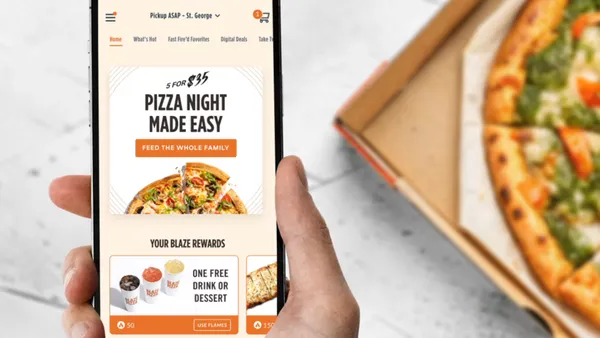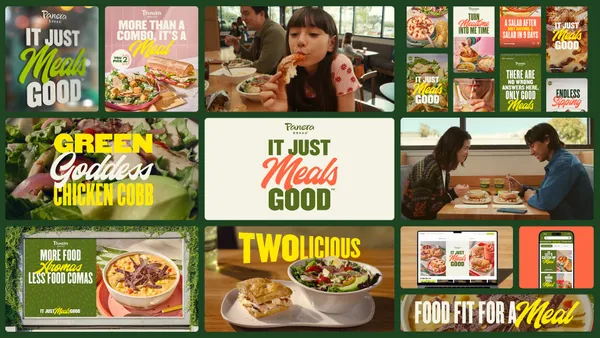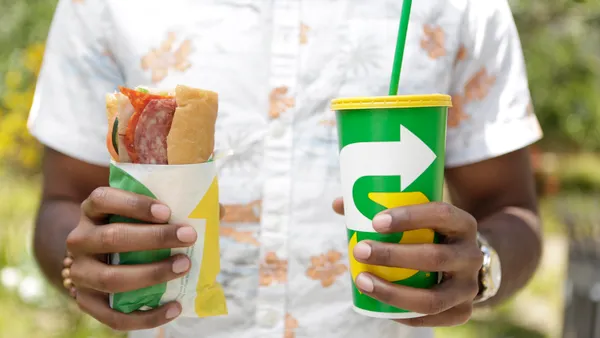Dive Brief:
- Thirty-eight percent of consumers who already participate in the metaverse or are interested in it would be willing to add restaurant purchases to their metaverse experience, a new report from Paytronix and PYMNTS finds.
- Twenty percent of restaurant consumers are familiar with the metaverse and 18% have participated in this virtual environment, the report shows.
- About one-fifth of consumers who aren’t interested in buying food in the metaverse are unfamiliar with the space. But awareness could rise — the metaverse is expected to grow 50% annually through 2030, per Precedence Research.
Dive Insight:
Metaverse-anchored marketing could help restaurant chains better reach Gen Z consumers, who visit restaurants less frequently than Gen X and millennials did in their peak restaurant-going years, according to The NPD Group. Forty percent of this demographic is “very familiar” with the metaverse, and 27% have participated in the environment, per the Paytronix and PYMNTS report.
Several chains have jumped into the metaverse to tap into this consumer behavior. Last fall, Chipotle opened a virtual restaurant in the gaming platform Roblox where visitors could get a promotional code for a free burrito, for instance. Wendy’s opened a restaurant in Horizon Worlds, a virtual reality game from Meta, where visitors can play a virtual basketball game while being served Wendy’s ads.
Other brands, like Pizza Hut and Jimmy John’s, are tying the metaverse into loyalty programs and offering rewards to reach a captive audience and differentiate their rewards as such offerings become more ubiquitous.
“The media landscape is already scattered, creating a massive fight for attention. Brands are vying for spots on Google search, in Facebook feeds, on Apple screens and on any dozens of different social sites. The metaverse represents the next battleground,” Paytronix CMO Michelle Tempesta said in a statement. “Loyalty programs open a direct line of communication between brands and customers that only continues to grow in importance. Customers want to maintain a strong relationship with their favorite brands, regardless of where that happens.”
Although consumer familiarity with the metaverse is growing, that doesn’t mean restaurants should lose their focus on in-person experiences. The Paytronix/PYMTNS report finds that more than 33% of consumers believe friendliness is the most important attribute a restaurant can provide, for instance. Further, consumers prefer employee familiarity when dining out – nearly 75% say that seeing the same staff every time they visit positively influences their experience.
And though the metaverse is finding more favor, there is a large cohort of consumers – 60%, according to a Productsup report – who have no interest in virtual environments. Fifty-five percent of U.S. adults also have privacy concerns with using the metaverse.














